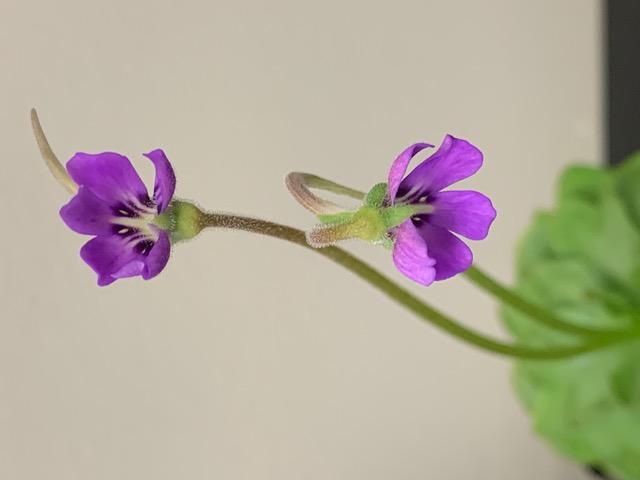With genes from carnivorous plants, researchers aim to grow hardier crop plants

Credit: Tanya Renner, Penn State
UNIVERSITY PARK, Pa. — They won’t devour insects with leafy jaws, but with help from carnivorous plant genes, tomatoes, tobacco and other crops could one day better defend themselves from pathogenic fungi and insects. An international team of researchers has received a grant from the Human Frontier Science Program to investigate how carnivory-related genes, such as those involved in digestion, could help crops not only avoid pests, but also thrive in low-nutrient environments. Ultimately, the team’s goal is to reduce reliance on pesticides and fertilizers.
“The study of plants can provide novel solutions for human welfare through improved crops,” said Tanya Renner, assistant professor of entomology at Penn State. “A key challenge is to efficiently select traits and underlying genes that exert similar functions when transferred from a donor plant to a recipient. We believe that some of the genes involved in carnivory — such as those involved in digesting insects and in maintaining leaf surfaces that prevent insects from escaping — could help to improve pest resistance of crops or create varieties that can grow on increasingly widespread eroded and infertile soils.”
According to Renner, carnivorous plants evolved the ability to digest insects as a way of obtaining nutrients in nutrient-poor environments. In a process called convergent evolution, these traits evolved separately in different plant lineages — comprising more than 800 species — living in different parts of the world.
“One of our goals with this project is to identify and characterize the convergent genes involved in carnivory for three types of carnivorous plants: sundews, butterworts and pitcher plants,” said Renner. “It will be the first-ever study of the key genetic underpinnings of plant carnivory on a broad scale.”
According to Renner, sundews and butterworts are flypaper-like plants that trap prey in sticky hairs on their leaves, while pitcher plants contain pitfall traps for capturing insects. Pitcher plants, she noted, have sticky, glue-like digestive fluid.
“We call this fluid, which is secreted from specialized glands located at the base of the pitcher, viscoelastic since it’s both viscous and elastic-like,” said Renner. “We’re interested in identifying genes that underlie the glue and seeing if viscoelasticity can be introduced to crop plants with glandular hairs, like tomato and tobacco.”
Renner noted that although carnivorous plants rely on nutrients from insects, certain proteins found in the digestive fluids of carnivorous plants may provide additional nutrition. These proteins have also been shown to have antimicrobial and insecticidal properties. Therefore, another of the team’s goals is to determine whether the proteins can deter pests and provide nutritional enhancements for crop plants grown in soil with low amounts of essential nutrients.
The researchers plan to test the performance of the transgenic crop plants through a variety of experiments. For example, to measure the plants’ ability to deter insects, they will allow tobacco and tomato hornworms to feed on the leaves of the plants, and then weigh the insects.
“Previous experiments have shown that insects gain less weight when attempting to feed on leaves that contain these proteins,” Renner explained.
In another experiment, to determine whether the digestive proteins provide nutritional enhancements for transgenic plants, the team will grow the plants in low-phosphate soil, and then measure their biomass.
Millions of pounds of pesticides and fertilizers are applied to crops in the United States each year, which are both costly and potentially damaging to ecosystems and human health.
“Overall, our goal is to achieve a proof-of-concept of trait transfers from carnivorous plants to crop plants with a goal of reducing the need for insecticide and fertilizer applications,” said Renner.
###
The Human Frontier Science Program supports innovative basic research into fundamental biological problems, with emphasis placed on novel and interdisciplinary approaches that involve scientific exchanges across national and disciplinary boundaries.
Other principal investigators on the grant include Kenji Fukushima at Julius-Maximilians-Universität Würzburg in Germany and Ulrike Bauer at the University of Bristol in the United Kingdom.
Media Contact
Sara LaJeunesse
[email protected]
Original Source
https:/




